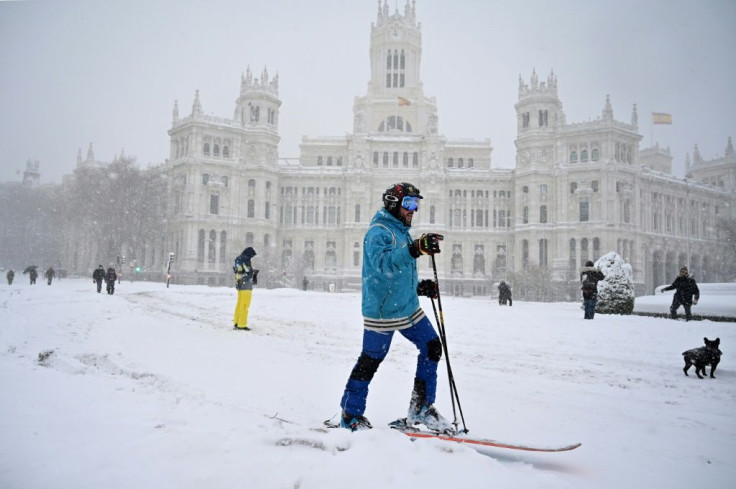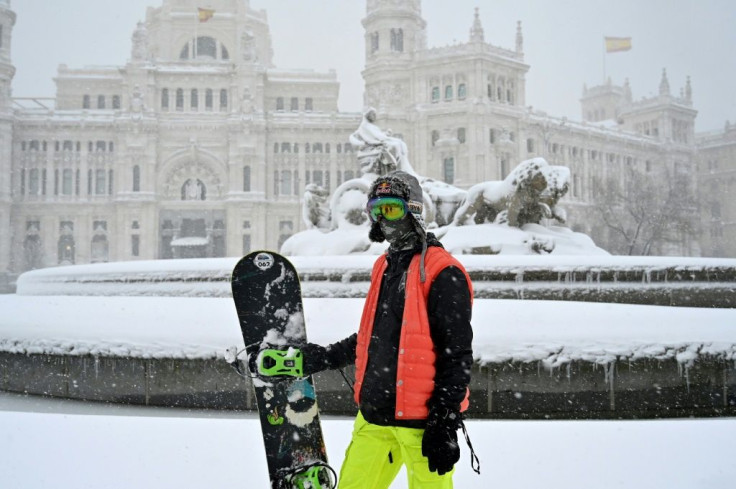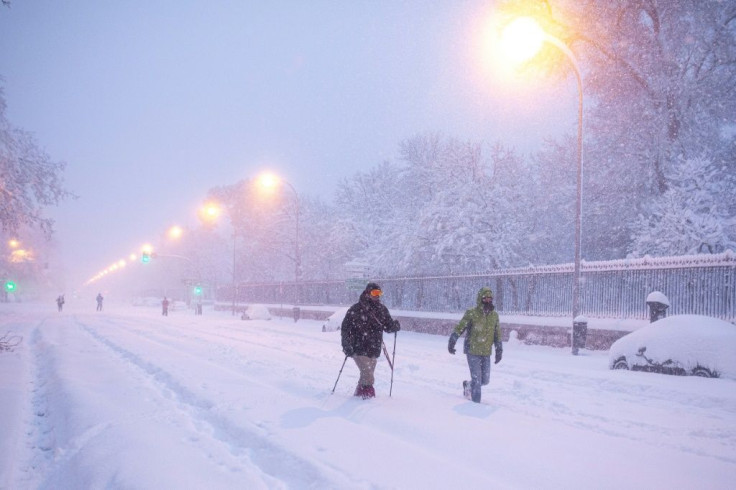Deadly Snowstorms Cause Chaos Across Spain
Snowstorms in Spain left three people dead and caused chaos across much of the country, trapping motorists and shutting down the capital's air and rail links, with more expected.
On Friday, Madrid experienced its heaviest snowfalls since 1971 in what the AEMET weather agency described as "exceptional and most likely historic" conditions caused by Storm Filomena.
Following a chaotic 36 hours, the snowfall began moving off towards the northeast from central Spain late Saturday.
"Even if, despite the extremely difficult weather conditions, the number of incidents is relatively limited, we have three deaths to mourn," Interior Minister Fernando Grande-Marlaska told a news conference.
One man was found dead under a snowdrift in Zarzalejo, northwest of Madrid, while two others died trying to cross a swollen river in Mijas, near Mediterranean city Malaga.

Grande-Marlaska added however that the national programme to vaccinate people against the coronavirus would continue next week.g
Security forces would do all they could to ensure the snow did not affect measures to stem the epidemic, "nor the vaccination campaign", the minister said.
Health and interior ministry officials would consult on Sunday to oversee "the transfer, stocking and distribution of new Pfizer vaccine doses that arrive Monday in Spain", he added.
Apart from Madrid, the exceptional conditions put another four regions in the centre of the country on red alert Saturday: Aragon, Valencia, Castilla La Mancha and Catalonia.
On Twitter, Prime Minister Pedro Sanchez called on people to stay indoors and follow the instructions of the emergency services. He paid tribute to the work of the rescue agencies who had helped hundreds of people trapped in the snow overnight.

Also on the social network, the Spanish king and queen expressed "pain" and "concern" for the public.
Madrid's Barajas airport was shut down late Friday, and the snowfall disrupted traffic on nearly 400 roads, according to transport officials. The Renfe rail network, meanwhile, said all trains to and from Madrid had been cancelled.
Grande-Marlaska said that by late Saturday, emergency services and army snow ploughs had freed all 2,500 drivers stuck on Spain's roads by the snowstorm.
Motorist Patricia Manzanares had earlier told national television how she had been stranded without food for 15 hours on the M-40 motorway in the Madrid region.

"I've been here since seven o'clock last night, there are lot of us in this situation. There are 60 centimetres of snow and we are soon going to run out of petrol" and thus lose the car heating, she said.
Madrid authorities closed the parks and suspended bus services and rubbish collections.
Madrid Mayor Jose Luis Martinez-Almeida described the situation as "extremely serious" in a tweet Saturday.
"We are working to clear access to hospitals as quickly as possible," he told the La Sexta television channel Saturday. "But frankly that is complicated, it has been snowing so much." The army arrived Friday to help the authorities, he added.
In Madrid itself, troops helped clear roads using snow ploughs and also helped rescue some motorists.
Schools and universities in and around Madrid will be closed Monday and Tuesday, said the president of the region Isabel Diaz Ayuso.
And a football match in Bilbao pitting Atletico Madrid against Elche-Getafe has been postponed indefinitely.
Skiers -- and a man on a sled drawn by five dogs -- could not resist the wintry conditions in the capital venturing out on to the normally busy Puerta del Sol.
In all, 36 out of Spain's 50 provinces declared snow alerts.
Catalonia in the southeast and Castilla La Mancha have both banned heavy goods vehicles from driving in the wintry conditions.
The historic city of Toledo asked the army for help clearing the streets, as did Albacete in the southeast, public television reported.
Forecasters said the heavy snow would continue until Sunday, before Storm Filomena begins moving northeast, although temperatures would remain exceptionally low.
Before the snowfall began Thursday morning, temperatures had already plummeted to an unofficial record low of -34.1 degrees Celsius (-29.38 Fahrenheit) at a ski station in the central Pyrenees on Wednesday.
Filomena has also brought intense rain and high winds to the Canary Islands as well as Spain's southern coast.
© Copyright AFP 2024. All rights reserved.





















